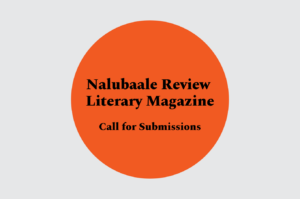
Zimbabwean authors are using WhatsApp to self-publish novels, build huge following, and make money, according to a report published by Aljazeera. The report, written by journalist Chris Muronzi, focuses on two writers, Kingston Dhewa and Pamela Ngirazi, and how the popular messaging app is helping them build audiences that many traditional writers could only dream of.
As Al Jazeera reports, Kingston Dhewa, who is a fruit vendor by day, has published 43 novels on WhatsApp and is reaching more than 4,000 readers through multiple Whatsapp groups.
Dhewa writes in Shona language and charges $2 for access to a full novel. Selling his novels brings in some money that goes a long way in supporting his family. Dhewa, who currently writes his novels on his smart phone, told Aljazeera that he could be writing much more if he had a laptop.
Pamela Ngirazi is another author featured in the report. She has over 21,000 followers on WhatsApp. She uses WhatsApp Channels to broadcast her chapters. The first 20 chapters are free, after which she charges for the full book.
Both Dhewa and Ngirazi are tapping into WhatsApp’s broad user base in Zimbabwe. Al Jazeera cites a report that states 5 million of Zimbabwe’s 16 million people are WhatsApp users. Such numbers indicate potential for building audiences around literary content in a country where purchasing traditional books is often prohibitively expensive.
Chris Muronzi does note in the Al Jazeera’s report that there are potential downsides such as concerns over quality control and intellectual property. Self-publishing on WhatsApp doesn’t have the editorial oversight that traditional publishers provide, raising questions about the consistency of content quality.
Notwithstanding, if authors are finding some level of success—no matter how modest—monetizing their work through WhatsApp, it is certainly worth paying attention to. The key question that arises is whether this is a passing trend or a sustainable model for the future of self-publishing. What kind of infrastructural support would be necessary to fully develop WhatsApp into a long-term publishing platform? For example, readers would need access to affordable data and make payments securely while authors would need solid intellectual property protections.
There is much to think about with how this trend, if developed, could make space for local stories, African language literature, and help authors meet the challenging difficulty economic environments.









COMMENTS -
Reader Interactions